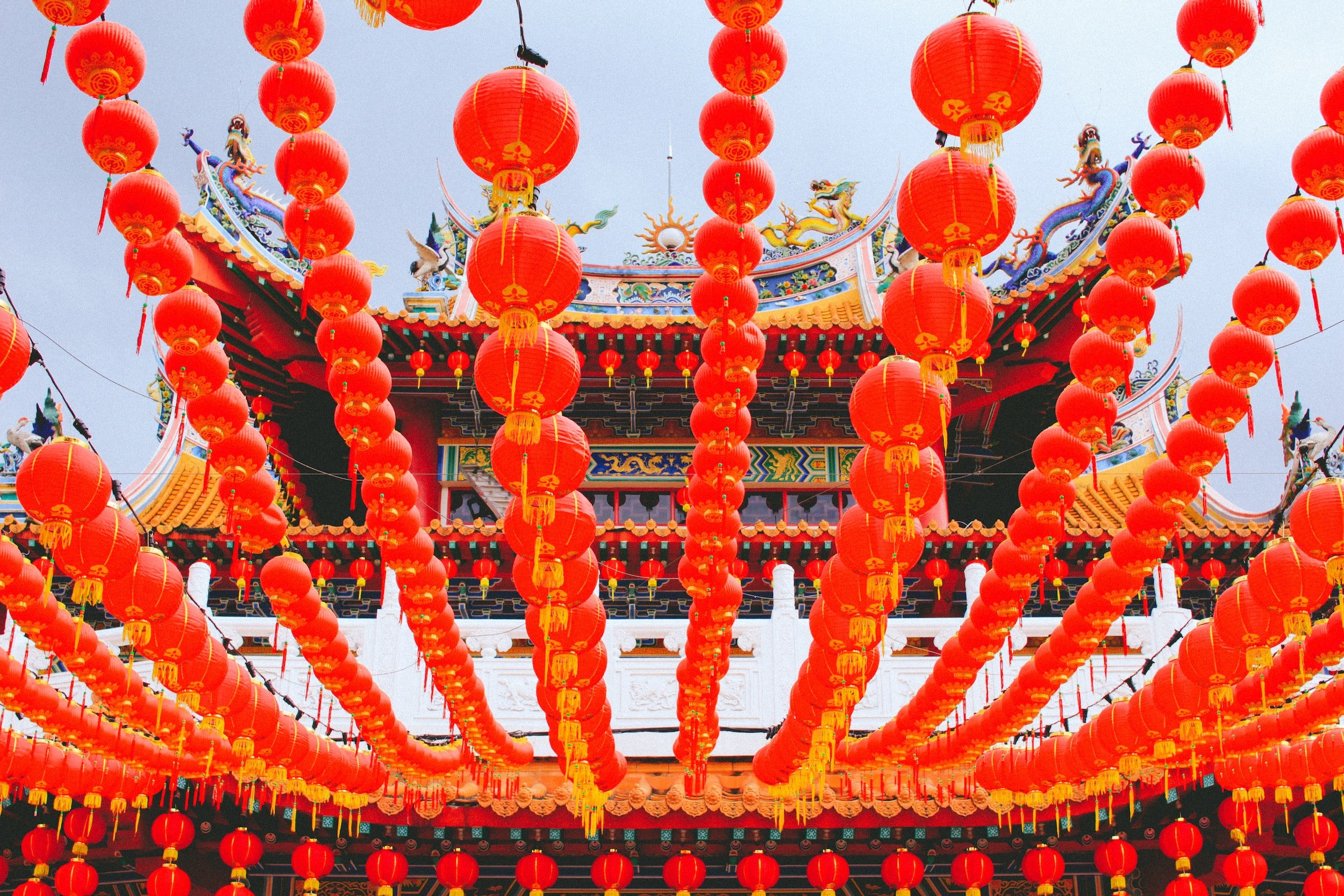
Editor’s Note: Ryan is an assistant pastor at New City Presbyterian Church in Cincinnati, Ohio, and is translation manager for China Partnership. He was born in China and moved to the United States at the age of 12. In recognition of his language skills and deep connection to China, in 2019 Ryan’s church gave him one day a week to work as translation manager for China Partnership. Ryan shares about that work, and about how one of the most beautiful things the American church is doing is happening far beyond America’s shores.
Ryan first shared a version of this talk last winter at the Beautiful Orthodoxy conference in New Orleans, La.
The name “house church” can be misleading, because it invokes images of Christians huddling in small, dark basements, worshiping in secret and avoiding government detection. Really it is just a term used to describe a church that is not registered with the Chinese government. Many house churches meet in hotel conference rooms, office buildings, outdoor spaces, or private homes.
>
”“Out of the ashes of ancient value systems and moral bankruptcy, the Chinese church sees an opportunity to build up the kingdom of God to bless their cities and their neighbors.”
I work with a team of translators and editors to create opportunities for Western churches to pray, support, encourage, and learn from the house churches in China. This is not only because they are going through persecution and we need to pray for them, but also because we believe the church in China will very soon become a leading voice in the global church. I want to share a few things I have been learning from our brothers and sisters in China. We gather sermons, articles, and writings from house church leaders and translate them into English, and you can find these materials on our websites and books.
China has not had a large Christian presence. But at the beginning of the twentieth century, the Chinese people did something they had never done in 3,000 years of history. In the face of external imperialism and internal corruption, China got rid of its emperor and Confucian feudal society. China briefly experimented with democracy, but eventually the Communists took over. The Cultural Revolution was about wiping out Confucianism from Chinese society and replacing it with communism. That revolution ended in economic and societal disasters. People lost their ancient values, but they were also disillusioned with the Communists.
Never miss a story
For the last 40 years, the Chinese Communist Party has done something very un-communist: they tell people, “Make money, get rich!” Materialism has taken over. At this cross-roads of post-Confucianism, post-communism, and materialism, there is a rising sense of loss and moral bankruptcy. At this cross-roads, a gospel movement is speaking new life to souls in China. Even under heavy persecution over the last four years, believers remain faithful to this calling. I have been learning from them in four major areas:
First, the Chinese church is modeling how to love their city, even though some of their neighbors actively persecute them.
Chinese pastors regularly share the gospel with police officers who harass them. Many have used time in jail to share the gospel with fellow prisoners, and some of those prisoners have joined their church and became Christians. They do this because they know everyone in the Chinese society is lost in a world of materialism and moral bankruptcy. One Chinese pastor often says, “the church is the scaffolding of the new heavens and the new earth.”
>
”“Although they know Christ is with them now, they still live under a grim reality. They are still marginalized, still face police harassment, some of them may still go to jail….What sustains them in China is not just knowing Christ suffers with them, but knowing they suffer in Christ.”
Out of the ashes of ancient value systems and moral bankruptcy, the Chinese church sees an opportunity to build up the kingdom of God to bless their cities and their neighbors. My colleague in China Partnership often says that if we want to see revival in America, we should learn from those being revived. Along the same lines, if we are concerned about deconstruction here, we should learn from those who have actually gone through cultural revolutions.
Second, they love their church family.
The Chinese cultural and social order is rooted in traditional family values, but some of the most enduring pictures in my mind are Chinese believers gathering outside police stations and prisons with flowers to welcome their pastors or elders when they are released from prison. It is as if these leaders just won some kind of award. When the pastors and elders of one church were arrested by the police, leaders from other parts of the country traveled overnight to help stabilize the church. They do this at the risk of getting in trouble themselves, because now they are known accomplices.
Third, Chinese Christians are teaching us how to love church family around the globe.
When a change in American foreign policy last year put churches in one Middle Eastern country in severe danger of persecution and death, many of us watched in horror on TV. But in the weeks after that, over 20 pastors in China began writing letters of encouragement to house churches in that Middle Eastern country. These letters were written in Chinese, translated into English, then we worked with a group to translate them into local languages and delivered them to churches in that country. We know they have been disseminated and read by brothers and sisters there.
The situation in this Middle Eastern country is much worse than the situation in China, but one persecuted church is writing to another to tell them: “We suffer with you, and we hope with you. Press on.” In those letters, Chinese pastors highlighted over and over again the hope they have in Christ.
Finally, Chinese brothers and sisters teach me what it means to be an Easter people.
It is fair to say that in the West, we are naturally more of a Christmas people. You may be able to relate on this: we like to focus on Christ being with us and suffering with us. We comfort people with the peace of Christ and the presence of Christ, Immanuel. That is all true.
But Chinese brothers and sisters remind me of something even better. Although they know Christ is with them now, they still live under a grim reality. They are still marginalized, still face police harassment, some of them may still go to jail. How do they do it? Why not just leave? Some could have moved to America.
>
”“My heart is filled with surprising peace….I have temporarily lost my life of freedom, but I have not lost my freedom of thought; I have temporarily lost Sunday worship, but I have not lost my faith; although I am imprisoned, there is a bigger prison out there.”
“But as it is, they desire a better country, that is, a heavenly one.” What sustains them in China is not just knowing Christ suffers with them, but knowing that they suffer in Christ. As one pastor in Shanghai said, “they suffer the suffering of Christ, in Christ.” If they are united with Christ in his suffering, they will be united with him in his resurrection. This way of the cross is the way of resurrection. To them this world is not worthy. They are seeking a kingdom that cannot be shaken.
I want to close by reading a short letter from a Chinese brother who is now facing a several-year prison sentence. He recently wrote this:
Mom and Dad,
Be strong, be joyful, and live each day well. These days, my heart is filled with surprising peace. What have I lost in the past years? I have temporarily lost time with my family, but I have not lost the love of my family; I have temporarily lost my life of freedom, but I have not lost my freedom of thought; I have temporarily lost Sunday worship, but I have not lost my faith; although I am imprisoned, there is a bigger prison out there.
I find this saying very true: he who has faith can lose nothing; he can turn hell into heaven; he can sleep peacefully in the midst of the storm; he can sing gratefully in prison; he can become a dancer with chains. He who has no faith can have nothing, and will only turn heaven into hell.
We are truly free and can lose nothing compared to those who have been enslaved all their lives by the fear of death. Mom and Dad, you are losing me just like Abraham lost Isaac, Jacob lost Joseph and Benjamin, and the father lost the prodigal son. But they were all lost and found, and so will yours be also. If it is more blessed to give than to receive, it can also be said that it is more blessed to lose than to gain; for it is only by losing that we can gain more beauty.
Ryan moved from Guangzhou, China, to Ohio at the age of 12. He is the pastor for neighborhood ministries at New City Presbyterian Church in Cincinnati, Ohio, and also serves as the translation manager for China Partnership.
FOR PRAYER AND REFLECTION
Pray for Chinese Christians to continue loving their city, their church family, and the global church. Pray for them as they suffer in Christ as an “Easter people.”


































